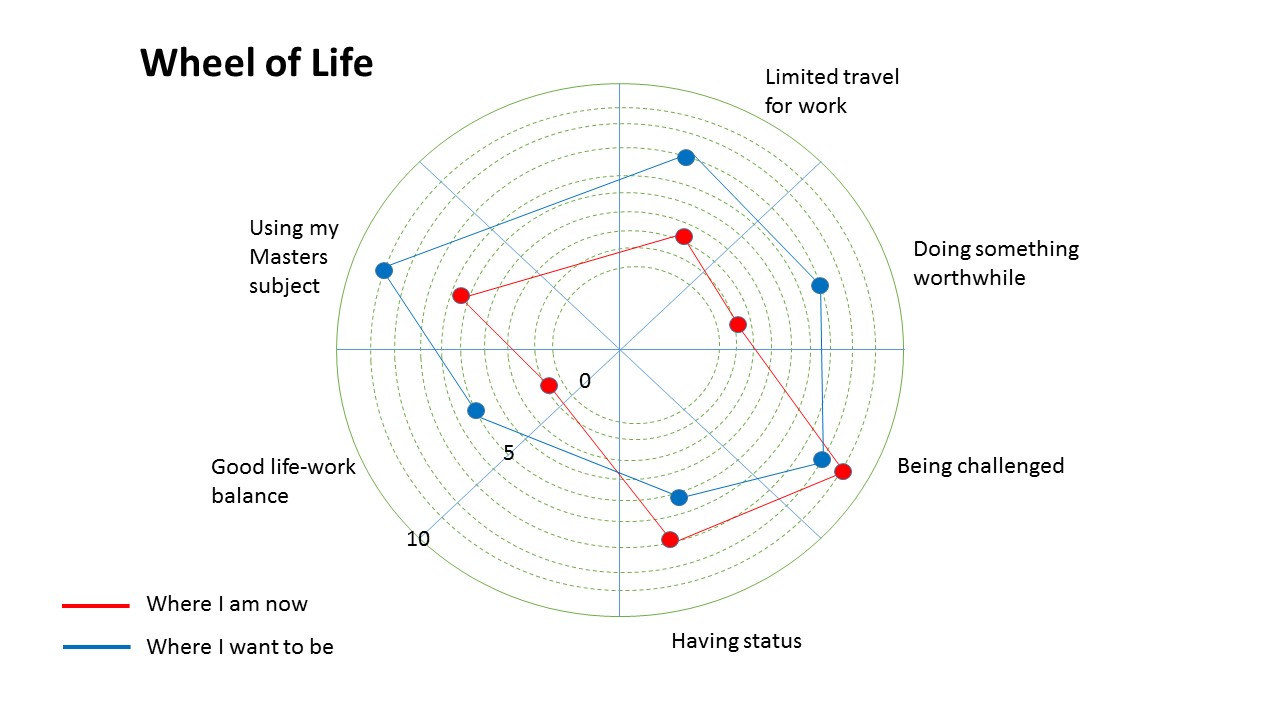We all want different things from a career / job. Some people want to earn lots of money, some to have a good life-work balance, some to feel they are making a difference to society, some to be constantly challenged, and others may want all of those things and more. Reflecting on what’s important to you in a job and how this fits into the rest of your life can help you to make good career decisions and find job satisfaction.
Many of you will be working alongside your studies but may be hoping further study will help you to progress in your career. The Wheel of Life is a tool which can help you to take stock of where you are now in your career and where you want to be. Think about the significant factors for you in career. In the illustration below we’ve chosen doing something worthwhile, finding challenge in a job, the status a job role gives you, the amount of travel you do for work, using the knowledge gained through study, and achieving work-life balance. Some of these things may be important to you but you’ll come up with your own list.
 Draw your own Wheel of Life. For each factor that is significant for you, plot on the wheel from 1 – 10 (where 1 is low and 10 is high) how far you are expending energy current role (as a student or as an employee) is satisfying these needs. Then do it again to show where you would like the relative levels to be for each factor. Remember that sometimes you need to make choices in a career so choosing 10 for each of your key factors is probably not going to be realistic; you need to consider how important each factor is and where you are willing to compromise. Once you have a visual representation of this you should start to see where you would like to make changes in your life / career. Then it’s up to you to consider how you can make those changes!
Draw your own Wheel of Life. For each factor that is significant for you, plot on the wheel from 1 – 10 (where 1 is low and 10 is high) how far you are expending energy current role (as a student or as an employee) is satisfying these needs. Then do it again to show where you would like the relative levels to be for each factor. Remember that sometimes you need to make choices in a career so choosing 10 for each of your key factors is probably not going to be realistic; you need to consider how important each factor is and where you are willing to compromise. Once you have a visual representation of this you should start to see where you would like to make changes in your life / career. Then it’s up to you to consider how you can make those changes!
If you’d like to discuss any of this with a careers consultant please make an appointment via the link below.



